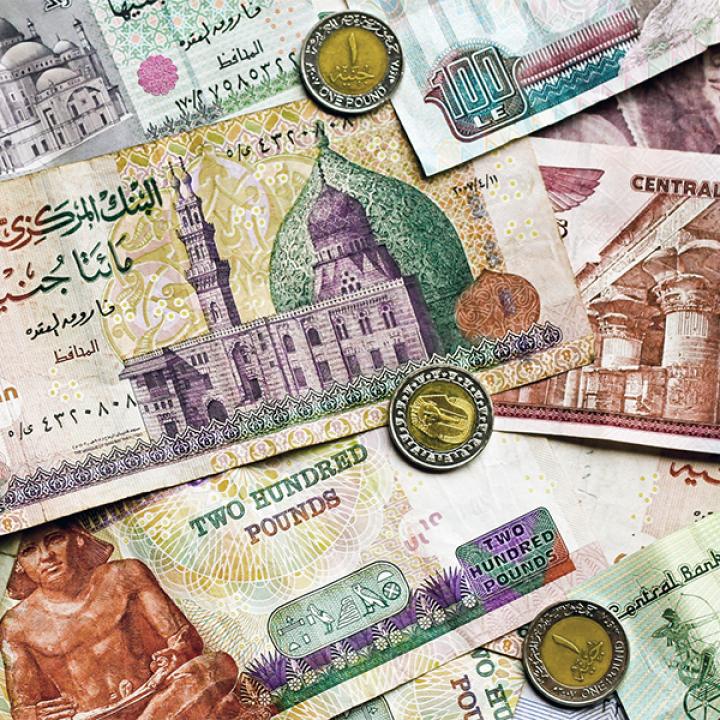

September 13, 2017
The first time I was exposed to the work of the United States Agency for International Development (USAID) in Egypt was in the early 1990s. I was a child in Imbaba, one of the most populous, radicalized, and poorest areas in Cairo. The area did not have sewage drains, and the only way to dispose of household waste was through a private vehicle that came to the house every month or two to collect it.
Early one summer day, carts loaded with workers came to the neighborhood. Within days, they had dug up all the streets of the neighborhood to install a sewer system. A week later, they raised a big poster over the entrance to the neighborhood: it depicted two hands holding each other, surrounded by something that looked like the American flag (the USAID logo, I would learn many years later). The workers departed in the winter, after restoring our streets to their original condition. As they left the neighborhood for the last time, all the residents cheered, heartened by “the government’s” interest in their affairs - meaning the Egyptian government, as no one in my neighborhood understood the role of the U.S. government in the project. The Egyptian government’s generosity, and its interest in our health, was agreed upon by all. Some felt sorry for the truck driver, whose job collecting waste was now rendered superfluous.
The neighborhood was brought together each week by Friday prayers. Despite their differences, all the sheikhs stressed one similar point in their sermons: praying for death to America.
Nearly ten years later I enrolled in law school, where I found that same idea now being expressed by my classmates. The Muslim Brotherhood and Salafists were ubiquitous on campus, where their welcoming demeanor comforted students coming to the big city for the first time. A small group of ‘revolutionary socialists’ were there as well. Despite the many differences between Islamic groups and revolutionary socialists, one hatred united them all: their hate of the United States and Israel and their beliefs in theories that the United States and Israel were conspiring to undermine Egypt and the broader Arab world.
In my second year of law school, I first read a book about Islam and politics, Islam and the Foundations of Governance, in which Ali Abdul Razek argues that Islamic law should have no role in governance. This book opened my eyes to concerns other than those of my neighborhood preachers, mosques, or the Islamic and socialist student associations. I became the first law student working to promote liberal ideas on campus, and co-founded the first classic liberal youth organization in Egypt in 2007 after graduation, coinciding with the opening of the public sphere in Egypt under international pressure.
Despite my neighborhood being a direct beneficiary of USAID, the USAID projects in Egypt created neither the atmosphere nor the resources for people like me to learn ideas other than those of the Islamists or the socialists, and USAID’s development of the neighborhood did not stop the hate toward the United States. For more than thirty years, the United States has tried to cultivate an ally in Egypt that shares - or at least accepts - American values. Egypt is the beneficiary of one of the United States’ longest-running foreign aid programs, and is the third largest global recipient of U.S. aid after Afghanistan and Israel, the Washington Post reported. The United States has invested nearly $28 billion in economic assistance in Egypt.
Yet despite this substantial investment, the Egyptian institutions most in need of reform remain stagnant. USAID built 200 schools, provided 24 million books to school libraries, trained more than 200,000 teachers, assistants, and school administrators, and provided support for technology use. The culmination of these efforts was Egyptian education ranking 118 out of 118 countries in education quality in the 2013-2014 Global Competitiveness Report.
USAID has carried out many infrastructure projects that have undeniably changed the lives of Egyptians. USAID provided nearly $5.7 billion to Egypt between 1975 and 2006 (more than 20 percent of total aid to Egypt), and improved access to drinking water for one-third of Egyptians. Egypt's electricity production has increased tenfold since aid projects started in 1975, and energy consumption by Egyptians increased by 600 percent. But the problem is that Egyptians are never told about USAID’s work, or are exposed only to disinformation spread by the Egyptian media. If USAID funds a health or education project, the United States should require the Egyptian government to inform its people that USAID works to help them in order to change minds about the Unites States.
The image of the United States among Egyptians more broadly is notoriously dim. However, in 1974 the Egyptian people welcomed President Nixon optimistically, eager to build friendly relations with the United States thanks to the efforts of president Anwar al-Sadat who spoke clearly about the necessity of a strong relationship between Egypt and the United States. In 2015, Sisi himself said, “We are keen on a strategic relationship with the United States above everything else. And we will never turn our backs on you—even if you turn your backs on us.”
An inseparable part of strengthening the Egyptian-American relationship must be working for democratic rights. In particular, the draconian NGO law recently ratified by Sisi will stymie the efforts of all development organizations in Egypt, both foreign and domestic. Ambassador Mark Green, who Congress recently approved to head USAID, was previously the president of the International Republican Institute (IRI) and has voiced support for democracy promotion as one of USAID’s goals.
In addition to pushing back against the NGO law, Ambassador Green should reconsider USAID’s broader Egypt strategy. According to the 2017 POMED report on the budget proposal, the administration-requested aid levels in the FY 2018 budget proposal are overwhelmingly tilted towards military aid, with only five percent budgeted for economic assistance and only one percent set aside for democracy and governance programs. An aid package that marginalizes spending on reform will create neither a friendly society nor a friendly government.
At the same time, continued spending on economic and education programs without tackling corruption in Egypt will likely lead to the same results. Ambassador Green must learn from the past and set a clear goal of building relations with local beneficiaries of development projects by holding direct public meetings with local groups and local civil society organizations. USAID must invest in building governmental and non-governmental institutions to combat corruption. USAID should also demand that Egypt’s accountability report be made public, or at least the sections that cover USAID projects.
Ambassador Green should seek assurances from Egyptian government officials that they will speak about the importance of strong relations with the United States, and the U.S. Embassy in Cairo should push back against media reports that attack the United States in Egypt. He must recognize that U.S. foreign aid to Egypt could be a valuable component of turning Egypt into a real ally, but he must also refrain from continuing to support a government that does not hesitate to bite the hand that feeds it.


